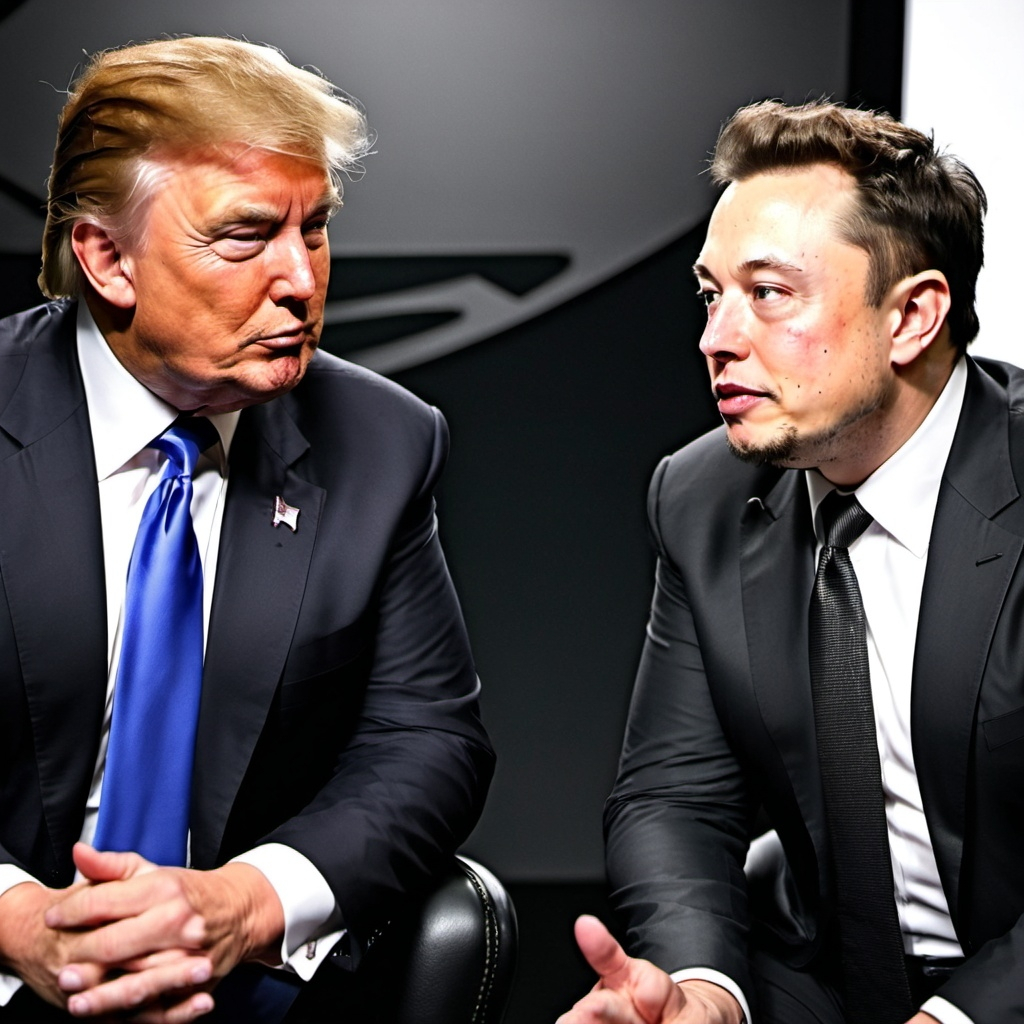Antagonizer: Exploring the Public Falls from Grace of Trump, Seinfeld, and Musk
November 25, 2024

What happens when high-profile individuals face widespread criticism and disapproval in a society that thrives on approval? Let’s delve into the behavioral patterns of three public figures – Donald Trump, Jerry Seinfeld, and Elon Musk – who, after experiencing societal backlash, have seemingly aligned themselves with antagonistic views or individuals.
Donald Trump: A Political Rise and Fall
Before his political career, Donald Trump was primarily known as a wealthy real estate mogul and reality TV personality. Despite his share of controversies, he maintained a relatively neutral public image.
Trump decided to run for president as a Republican after Hillary Clinton, an old friend and now rival, became the Democratic nominee. He soon faced intense public scrutiny and controversies surrounding accusations of sexual misconduct, sexism, and racism. In response to the significant criticism and backlash, Trump increasingly aligned himself with polarizing figures and rhetoric, embracing an “us versus them” mentality.
The escalating public outcry catalyzed for Trump to lean into right-wing extremist ideals, which in turn galvanized support from those who shared his perceived grievances such as the faction of white Americans who felt the government had forsaken them for people of color.
Jerry Seinfeld: Comedic Fallout
Jerry Seinfeld was widely celebrated for his observational humor and contributions to comedy. His TV show, “Seinfeld,” became a cultural touchstone, and he enjoyed broad public admiration.
In June 2015, Jerry Seinfeld made controversial remarks about political correctness in comedy during an interview with ESPN’s Colin Cowherd. Seinfeld stated that he no longer performs at college campuses because students are too politically correct and sensitive. He said, “They just want to use these words: ‘That’s racist;’ ‘That’s sexist;’ ‘That’s prejudice.’ They don’t know what they’re talking about.”
In a recent interview with The New Yorker, Seinfeld claimed that the “extreme left” stifled comedy. This statement ignited widespread debate and criticism, with many accusing Seinfeld of being out of touch with contemporary sensibilities. The controversy persisted as Seinfeld defended his position in subsequent interviews and public appearances, rather than acknowledging potential shortcomings or considering alternative viewpoints.
Criticism of Seinfeld’s remarks began to shift public perception of the comedian. Seinfeld publicly expressed openness to working with fellow comedian Michael Richard. In 2006, he was filmed going on a racist tirade against hecklers while performing at the Laugh Factory in California, who had kept a low profile due to racist actions in 2006. This alignment with Richards appeared to be a reaction to feeling criticized and perhaps an attempt to provoke those who had disapproved of his previous comments.
Elon Musk: From Beloved Innovator to Controversial Figure
Between 2014 and 2018, Elon Musk enjoyed a largely positive public image. His companies, SpaceX and Tesla, were revolutionizing the space and automotive industries, respectively, and his ambitious ideas captured the public’s imagination. Many viewed him as a billionaire who could save humanity. He even made a brief cameo in the 2010 Marvel film ‘Iron Man 2 and appeared on the cover of Time magazine.
However, around 2018, Musk began facing increasing scrutiny and criticism. Investors grew concerned about Tesla’s financial health, and Musk’s behavior on social media became erratic and controversial. His feuds with journalists and public figures, and his involvement in high-profile scandals like the “funding secured” tweet, damaged his reputation.
Finally, Musk’s stance on Twitter and “free speech,” particularly his support for allowing former President Donald Trump to remain on the platform after the January 6th Capitol riots, proved highly unpopular. This and his other controversies led to a significant decline in Musk’s public image.
Following criticism of his handling of Twitter, Musk increasingly embraced controversial stances and figures, actively engaging in antagonistic behavior. This shift appeared to be a response to the perceived rejection he experienced, as he sought solidarity with those who shared his feelings of rejection from an ever-changing society.
Understanding the Culture War
These examples highlight a larger cultural phenomenon, in which individuals respond to criticism by aligning themselves with those who will oppose their critics. This behavior is not solely motivated by politics but reflects deeper psychological and emotional underpinnings.
As society undergoes rapid changes marked by political polarization, threats of war, climate change, and social upheaval, many people feel a heightened sense of vulnerability and confusion. This anxiety can lead to a need for control and resistance to change.
The examples I used are of men with access to power and wealth. If we observe this behavior among them, what can we expect from the general population? Today, some Christians insist they are being persecuted for their beliefs. However, the cruel and heinous reality of religious persecution is something they have not experienced; what they’re facing is criticism for intolerance and hypocrisy.
A gentleman recently told me that Trump is the result of making white people, like himself, upset over topics such as white privilege and racism. They’ve been made to feel shame. They’ve been made to feel disliked. The solution then is to vote for someone like Trump knowing that it will be devastating to those who want progress and equality.
Like Donald Trump and Elon Musk, aligning oneself with the perceived enemy of one’s critics becomes the chosen path. This is in stark contrast to simply hearing the criticism, reflecting on it, and accepting responsibility for one’s mistakes and poor choices.
It’s worth noting that Jerry Seinfeld has since apologized for some of his controversial remarks. He appears to have stepped back from the antagonistic path he initially took during the height of his public backlash.
Thanks for taking the time to read this post! What are your thoughts? If you want to hear more from me, give me a follow on Instagram and threads!